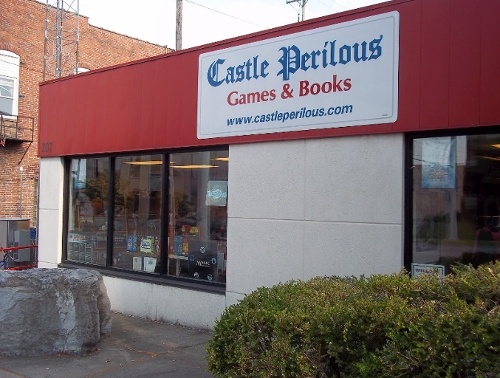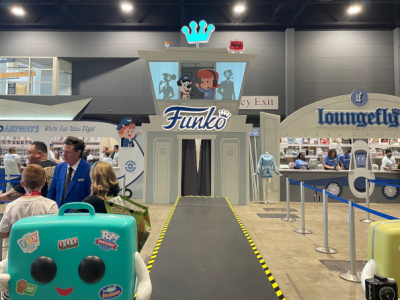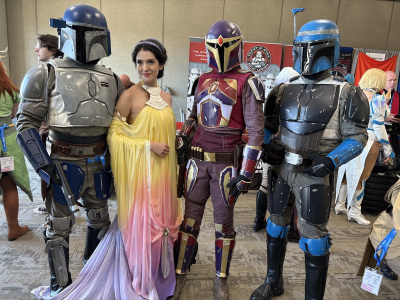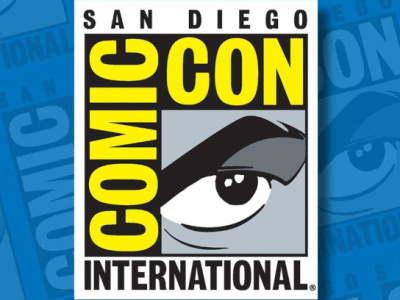Rolling for Initiative is a weekly column by Scott Thorne, PhD, owner of Castle Perilous Games & Books in Carbondale, Illinois and instructor in marketing at Southeast Missouri State University. This week, Thorne looks at the growing problem of counterfeit merchandise in the specialty game industry.
Counterfeits in the specialty game industry have been a problem for almost two decades now. Although there was some counterfeiting of Magic: The Gathering cards after the game grew popular in the mid-1990s, counterfeiting became a major problem when Pokemon grew popular in the late 1990s. While most Magic players could tell if someone had faked a Magic card, especially with the cruder copying capabilities at the time, most Pokemon players were much younger and had parents, who had little to no understanding of the game or cards, purchasing cards with no ready way to tell if they had purchased a fake card or not. As the popularity of Pokemon waned, the grifters moved on to the next card craze: Yu-Gi-Oh!.
In many ways, Yu-Gi-Oh! proved even easier to counterfeit than Pokemon had, as card designs could different between the Japanese version of the card and the English version and any discrepancies in the counterfeit version could easily get passed off as differences between the two types. Some counterfeiters did not even work that hard, simply laminating their fake cards in order to pass them off as “holofoil” cards. I remember finding decks and packs of Yu-Gi-Oh! cards for sale in flea markets that would not fool anyone with some experience with the game, but a kid or parent with a few extra dollars would happily purchase these bargain priced cards and I had a mother really upset when I told her the Egyptian God Cards she had purchased on eBay were fake.
The advent of higher quality printers and access to higher quality paper brought a resurgence of Magic fakes, enough so that Wizards of the Coast produced this article regarding identifying fake cards back in 2004 and the quality of the fakes has improved significantly since then.
The problem with dealing with counterfeit TCG cards is that they are strictly an aftermarket item. Counterfeiters could produce fake booster packs, decks or even complete booster boxes but in general the value of one of those items was such that it was not worth the effort put into doing so.
Counterfeiting individual cards, with a higher per item value proved fare more lucrative. However, we appear to have moved into a new era of counterfeiting as publishers of specialty board games report counterfeit copies hitting the market including King of Tokyo, Pandemic: Legacy and Blokus. Given the number of board games produced in China today, due to cost savings, it is very easy for a printer to produce extra copies of a game or a knockoff of a popular one and sell it at a significantly lower price than the actual publisher.
Why does this matter? Well, the publisher does not get paid for counterfeit or knockoff copies. If a counterfeiter produces illegal copies of a game and sells them significantly cheaper than the publisher, both manufacturer and retailer get left with unsold copies while those sales go into the pocket of the counterfeiter. Publishers, especially small ones, often do not have the cash flow to sustain a hit to their bottom line like this. As the problem with counterfeit games grows bigger, expect to see more active pursuit of counterfeiters by manufacturers and publishers.
The opinions expressed in this column are solely those of the writer, and do not necessarily reflect the views of the editorial staff of ICv2.com.
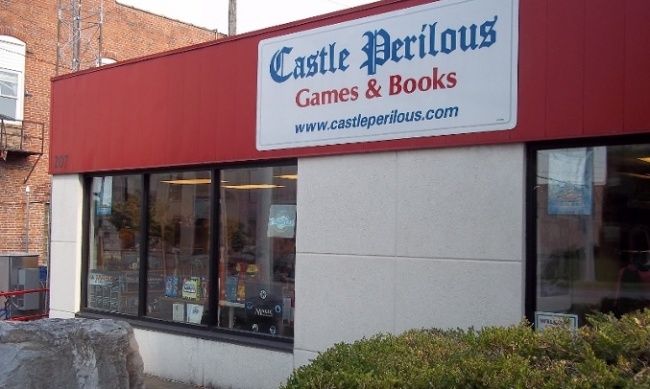
Column by Scott Thorne
Posted by Scott Thorne on October 16, 2017 @ 1:47 am CT
MORE GAMES
On 28% U.S. Sales Decline
August 8, 2025
Funko reported a loss of $41 million on a 28% U.S. sales decline in a brutal second quarter, which it attributed primarily to the impact of U.S. import taxes.
Inside and Outside the Con
August 7, 2025
Cosplayers and re-enactors showed off their talents both inside and outside the convention center.
MORE COLUMNS
Column by Jeffrey Dohm-Sanchez
August 7, 2025
ICv2 Managing Editor Jeffrey Dohm-Sanchez lays out the hotness of Gen Con 2025.
Column by Rob Salkowitz
August 5, 2025
In this week's column by Rob Salkowitz, he looks at the industry's biggest show, held in the midst of some existential issues.



